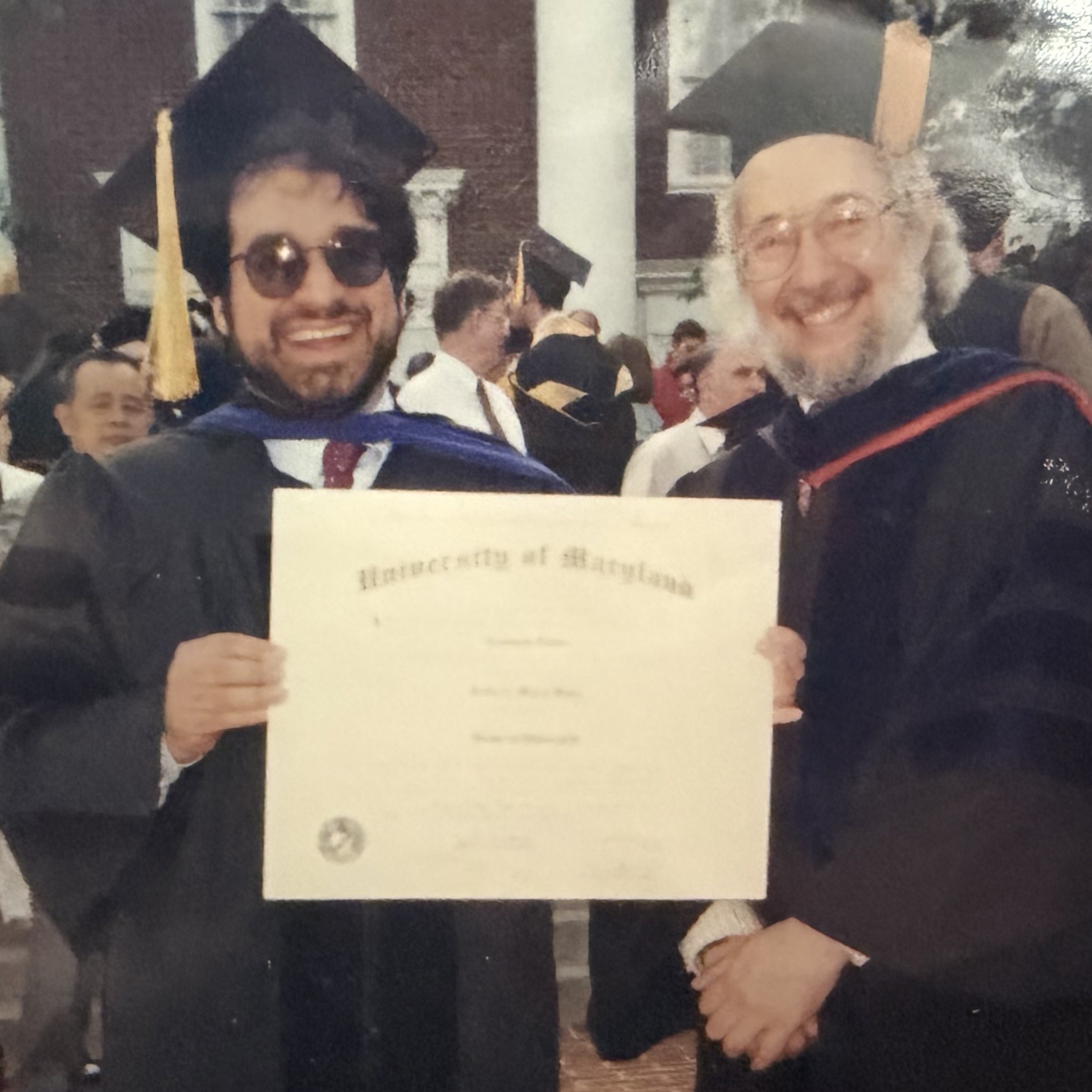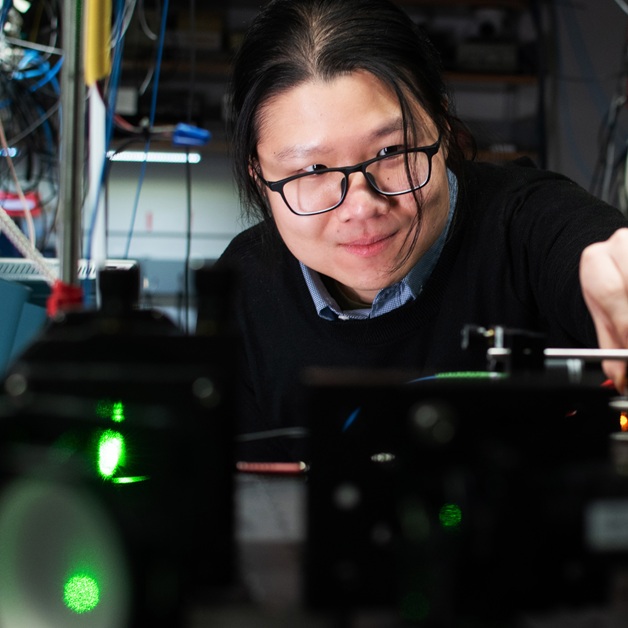Personnel
- J. Robert Anderson, Professor
- Alex Dragt, Professor Emeritus
- Christopher Lobb, Professor
- Frederick Wellstood, Professor
Research Areas
- rf SQUID
Research Group Website: http://sqcg.jqi.umd.edu/
 Remembering and Giving Back It’s been more than 30 years, but Jeff Saul (M.S. ’91, Ph.D. ’98, physics) still remembers the week that changed his life. “I guess I must have been in the right place at the right time, because that week started with Joe Redish becoming my… Read More
Remembering and Giving Back It’s been more than 30 years, but Jeff Saul (M.S. ’91, Ph.D. ’98, physics) still remembers the week that changed his life. “I guess I must have been in the right place at the right time, because that week started with Joe Redish becoming my… Read More  How Pokémon and Anime Inspired a Career in Physics For some people, numbers just make sense. That’s always been the case for Samuel Márquez González (B.S. ’25, physics). Márquez remembers his quantitative curiosity first sparking while he was playing Pokémon video games in elementary school. Inspired by his favorite character, Pancham, a pubescent dark-… Read More
How Pokémon and Anime Inspired a Career in Physics For some people, numbers just make sense. That’s always been the case for Samuel Márquez González (B.S. ’25, physics). Márquez remembers his quantitative curiosity first sparking while he was playing Pokémon video games in elementary school. Inspired by his favorite character, Pancham, a pubescent dark-… Read More  Conducting Quantum Experiments in the ‘Coolest’ Lab on Campus When University of Maryland physics Ph.D. candidate Yanda Geng tells people he works at the ‘coolest’ lab on campus, he’s not exaggerating. In his laboratory at the Joint Quantum Institute (JQI), atoms are cooled to 100 nanokelvin—about one billionth of a degree above absolute zero… Read More
Conducting Quantum Experiments in the ‘Coolest’ Lab on Campus When University of Maryland physics Ph.D. candidate Yanda Geng tells people he works at the ‘coolest’ lab on campus, he’s not exaggerating. In his laboratory at the Joint Quantum Institute (JQI), atoms are cooled to 100 nanokelvin—about one billionth of a degree above absolute zero… Read More  Air Force Veteran Rekindles His Passion for Science at UMD Morgan Smith (B.S. ’25, physics) wasn’t your typical undergraduate student. Before he even began his undergraduate degree at the University of Maryland at age 29, he’d traveled the United States and dedicated six years to serving his country in the military. After graduating high school… Read More
Air Force Veteran Rekindles His Passion for Science at UMD Morgan Smith (B.S. ’25, physics) wasn’t your typical undergraduate student. Before he even began his undergraduate degree at the University of Maryland at age 29, he’d traveled the United States and dedicated six years to serving his country in the military. After graduating high school… Read More